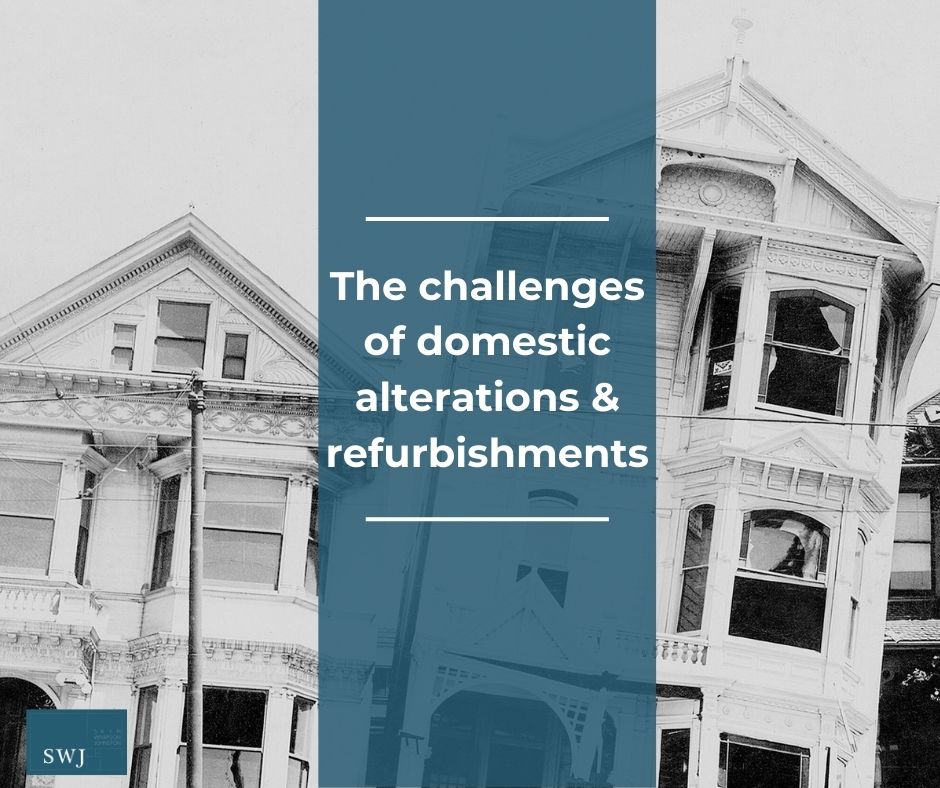Sam Johnston – Director. SWJ Consulting Ltd
Modular Homes and off-site construction are heralded daily as both the future of the UK construction industry and the silver bullet that will solve the housing crisis. A recent survey completed by the ECA, CIBSE and SELECT has found that offsite construction is safer, faster, greener and cheaper. So, if this is the case why is the UK industry so seemingly slow on the uptake of off-site and modular construction?
Five years ago, I completed a pros and cons list for a client thinking of using modular construction, compared to concrete frame-flat slab and or cross laminated timber (a snippet is below) to help them decide on the right method of construction for their project and every year the industry press talks about that year being the year modular housing takes off.
Since then SWJ Consulting has worked on several modular construction projects that have given a real insight into what is the best approach for using modular, problems that may arise and consequent planning for a smooth build. It’s our experiences of the issues thrown up by both the process and the product that give insight into why the market has been slow to adopt modular housing despite its apparent time, cost and labour–saving benefits.
Modular housing is not a new concept, post World War 2 the industry was forced to turn modular to meet the demand for new homes which expanded in the late 50s and early 60s to modular construction of schools and medical facilities. Today, it is routinely used by the retail and hospitality sector. The ECA survey showed impressive results for their industry; 61% saw increased productivity, 47% reported enhanced employee safety, a higher quality of work, lower downtime and a reduction in operational costs – all fantastic results for the construction service industry.
It’s the very fact that modular construction is considered the silver bullet of the UK housing crisis that causes the issue. It should be considered a solution to the problem instead of identifying the problem and then deciding that modular could be the solution. You can’t create round walls with square pieces.
Modular construction works when the problem allows for it. But trying to shoe–horn the solution to fit the problem is likely to generate additional challenges. Clients forget that modular construction is a process as well as a product. Once the modules are on the production line, there is very little room for adaptability or design changes. For modular construction to be successful early design freeze from the client is required and a high level of collaboration across the design team is essential. We work closely with developers and architects and use a range of digital construction methods to model plans and ensure the solution will work. Once in play timings must be meticulously planned as, without space for storage, a just-in-time delivery schedule will be used, and contractors are essentially forced to use what’s delivered because of this lack of space and timing. A wrong delivery or a stalling of the process to make something fit means throwing out the entire delivery and build schedule.
Maybe the popularity of modular construction in the US and Europe is helped significantly by the amount of space they have to store and construct, alleviating timing and delivery pressures somewhat. If the problem, a large piece of land with no building, is suitable then all the benefits of modular construction come into play; time, costs, environmental etc. but as is the case in the vast majority of the UK building industry the problem is to retrofit then modular construction is very rarely the best solution, either now or in the future.
Read more on the Subject
- Designing a better future using modular techniques
https://www.pbctoday.co.uk/news/modular-construction-news/future-modular-techniques/56403/
- Will modular buildings be the homes of the future?
https://www.pbctoday.co.uk/news/modular-construction-news/modular-buildings-homes/59712/
- Offsite construction is safer, faster, greener and cheaper, according to ECA survey
- The Rise of Modular Construction: Emerging Commercial and Legal Considerations
https://cdn.ymaws.com/www.nibs.org/resource/resmgr/oscc/OSCC_RiseofModConstr.pdf
- Onwards and upwards: Modular Construction
https://www.ukconstructionmedia.co.uk/features/modular-construction-onwards-upwards/





